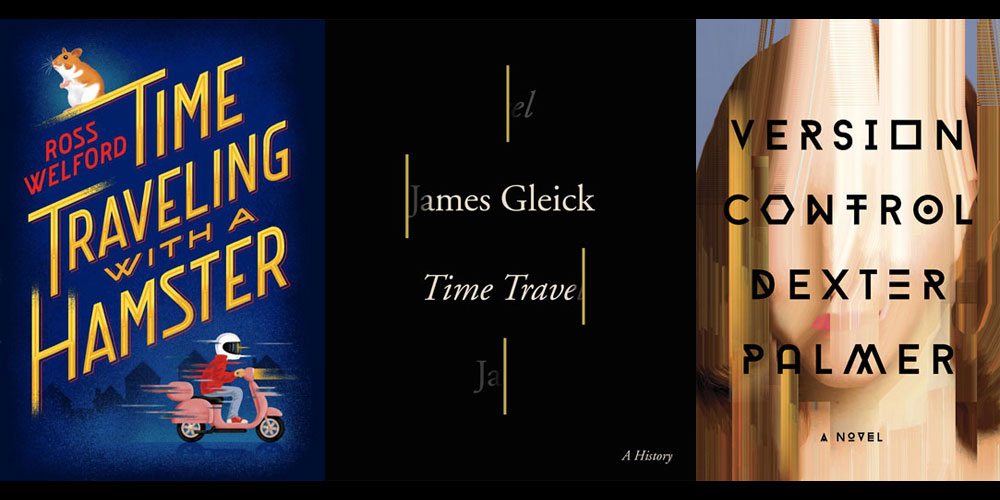47North is a new-ish imprint of Amazon Publishing with a focus on sci-fi, fantasy, and horror. I’m not a huge fan of horror fiction myself, and lately I find myself reading less sci-fi and more literary fiction (and a whole lot of middle-grade fiction). But I do appreciate a good sci-fi tale from time to time.

 Containment is a hard sci-fi book from first-time novelist Christian Cantrell. It’s the story of the first permanent human colony in space — more specifically, on Venus. Cantrell’s future plays out in a familiar fashion: our consumption of both energy and material resources eventually screws up the planet, though not before we finally manage some interplanetary travel. But what happens after life on Earth falls to pieces is a little different. For various reasons (explained later in the book), we end up on Venus with a small colony of a thousand people, hand-picked to be humanity’s best chance at survival.
Containment is a hard sci-fi book from first-time novelist Christian Cantrell. It’s the story of the first permanent human colony in space — more specifically, on Venus. Cantrell’s future plays out in a familiar fashion: our consumption of both energy and material resources eventually screws up the planet, though not before we finally manage some interplanetary travel. But what happens after life on Earth falls to pieces is a little different. For various reasons (explained later in the book), we end up on Venus with a small colony of a thousand people, hand-picked to be humanity’s best chance at survival.
Venus, of course, has a horrible environment: enormous atmospheric pressure, intense heat during the extremely long daytimes, toxic atmosphere, and lifeless soil. The V1 colonists live in an enclosed environment, with oxygen provided by genetically modified ferns. However, they’ve pretty much maxed out the oxygen capacity of the plants, which provided just enough for 100 additional humans. Gen V — the first generation of humans born on Venus, capped at exactly 100 people — has a big responsibility: they need to figure out a way to continue colonizing the planet, and the limiting factor is oxygen.
Arik is the most promising candidate of Gen V. He’s brilliant and solves problems that nobody else has been able to, so he’s been assigned the problem of AP: artificial photosynthesis. Arik, however, feels that the better solution would be to terraform Venus — develop plants which can spread themselves over the surface of the planet and change the environment, rather than just building a bigger bubble to live inside. But the Founders of V1 discourage this line of thinking.
When the story begins, Arik is just coming out of a long coma after a mishap — he was outside the colony walls in a pressure suit when something happened … but he can’t remember what, and nobody is talking. But the accident seems to point to some mystery, something that the Founders aren’t telling Arik and the rest of Gen V about the colony. As Arik delves deeper, he uncovers a lot of surprises, and discovers that things aren’t what they seem.
Containment paints a fascinating picture of what life on an alien planet might be like — things that are needed for survival, the difference in attitudes that a Venus-born generation would have from those that still remember life on Earth. Even without the mystery-fueled suspense, it makes for an engaging story about how our history might play out. However, at times the book veers off into info-dumps and it’s not always a smooth transition from plot point to backstory.
Cantrell manages a good chunk of the info-dump as three separate chapters, ostensibly a three-part history that was given to Gen V to explain their Earth origins to them. But really it’s a way to spell out to the reader what has happened since the mid-20th century until the book’s present day. Those sections are meant to be a dry history and so the tone didn’t bother me. However, there are other times in the regular plot-based chapters where there’s suddenly a few paragraphs of scientific instruction clumsily inserted, and those tend to stand out. I really liked John Barnes’ solution for Losers in Space: he included what he called “Notes for the Interested,” in which he spells out some of the science involved. But they were segregated from the plot itself, so if you just wanted the human interactions and intrigue without the science lessons, you could skip them. It’s not always possible to do that in a sci-fi book, but a better transition between plot and info-dump may have been helpful.
I do like this sort of story, though. I mentioned in my review of Losers in Space that I’m just drawn to these “trapped on a spaceship” stories, like the Across the Universe trilogy, or fellow GeekDad Erik Wecks’ short story Brody: Hope Unconquered. It’s why I’m so excited about playing Damage Report. It’s that challenge of solving some crisis with limited resource, limited access, limited mobility. While Containment isn’t exactly the same — they’re in a colony rather than in a spaceship — because of the circumstances they’re nearly just as trapped, and a lot of the psychological and emotional aspects are very similar.
If you don’t mind getting some science lessons in the middle of your stories, Containment is a fine first novel with some very intriguing ideas. Although it isn’t explicitly set up as the beginning of a series, I’d be interested to find out what happens to the characters following the end of this volume.
Wired: Fascinating projection of the first human colony on another planet.
Tired: Lots of info-dumps.
Disclosure: GeekDad received a readers’ proof for review purposes.

